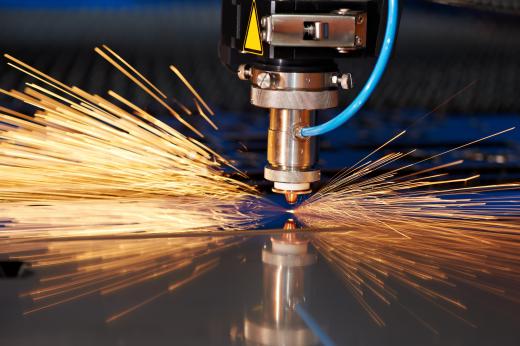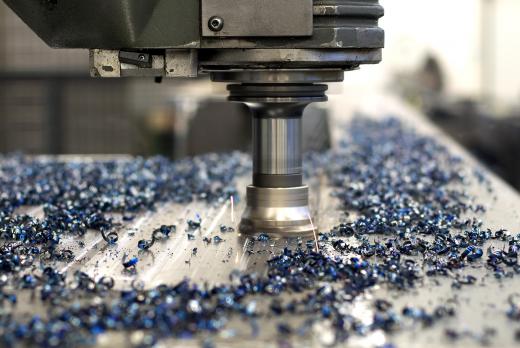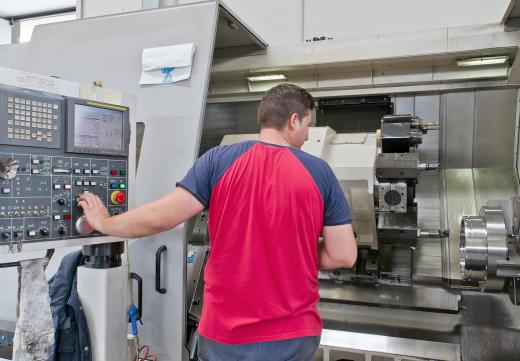A cutter head is a rotating piece of a machine containing a cutting bit that makes shapes in a work piece such as in a computer numerical control or CNC machine. The cutter head may also be a stationary tool that a work piece moves around such as found in a milling machine. It creates the cuts on the stock that give it its usefulness or its design often, a part is cut from a solid billet piece of stock. The cutter head is typically made of a material that is much harder than the product it is cutting and resembles the shape of the cut it is to perform.
In wood turning or machining, the cutter head is typically made of steel. The steel cutter can slice and carve its way through the wood effortlessly. This allows the craftsman to work the machine very quickly and complete many projects in a short time. Wood is also sanded smooth after it is machined with a cutter head, so the finished cut does not need to be perfectly smooth like some steel or iron parts.

Many of the materials used to create a cutter head for a CNC machine need to be stronger or harder than steel. Tungsten and carbide are often used in the creation of these tools. To help add longevity to these heads, coolant is used to reduce the heat produced in the cutting procedure. By spraying an oil-based coolant to the area being cut, the cutter remains sharp and the work piece does not discolor or warp.

While most cutters are sharp or blunt in nature, some resemble the mirror image of the product they are creating. The cutter head used to produce threads on bolts resembles a threaded shaft. This cutter is pressed into the side of a turning piece of smooth steel rod. As the cutter makes contact, the threads are rolled onto the smooth rod and a bolt is created.

Some cutters are not made of a physical substance, some are created from light. Laser cutters are nothing more than concentrated beams of light used to etch materials or even cut materials with no physical contact at all. The laser is able to operate for long periods without ever needing to be replaced or sharpened. The laser can be adjusted for various intensities so that a single head might cut, etch or burn in a single step. The initial high cost of a laser is offset by its long life cycle. While the typical wood tool is intended to be resharpened and re-used, the typical steel cutting CNC head is intended to be discarded after it has become dull from use.
